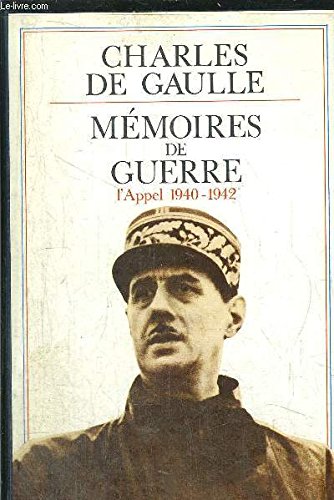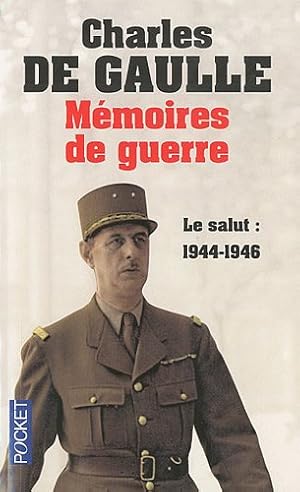

An anglophobia inherited from the Hundred Years War frequently manifested itself in him, as when he rebuked the young Mitterrand for visiting him in North Africa on a British plane.Īrrogance runs through Jackson's vivid portrait of the General, even before the war. It would be months before the British gave him anything like wholehearted support, but they did bankroll his growing outfit, replenished by escaped prisoners-of-war and help from some French colonies.īut de Gaulle was never remotely grateful to the British, and indeed drove his hosts to despair with his absurd demands and vanity. The British, unsure of de Gaulle's standing and still debating whether to make an accommodation with Vichy, reluctantly let him broadcast to the French on June 18 to say that he was carrying on the fight.


It began with denying the fact of France's dependence on her allies. He constructed myths to combat this, for him, horrific reality. The armistice that Pétain signed in June 1940, which left France with an unoccupied zone governed at the pleasure of the Germans from Vichy, was anathema to de Gaulle. If 1940 was the making of de Gaulle, at that stage a two-star general and a junior defence minister, then it was also the making of myths that Jackson dissects. Together, the de Gaulles would vet new ministers, examining them in particular for moral uprightness. Later, when enduring rather than enjoying the Élysée Palace, she used to de-stress by knitting, or washing the General's socks in a basin. An intensely shy woman, and principal carer for their youngest daughter Anne, who had Down syndrome, Yvonne spent the war isolated in Bexley, Berkhamsted and Shropshire before finally settling in Hampstead. Yvonne was long-suffering, but not in the traditional way of French wives: her husband's mistress was France, and Yvonne followed him to his postings in the Twenties and Thirties before getting out of France with their children in 1940 and joining de Gaulle in England. In his wife Yvonne, he found someone even more conservative and Catholic than he. That was one regard in which de Gaulle learnt from the Germans. "Ernst is das Leben," Schiller wrote: life is earnest. Now, as Jackson writes in his measured summation, he is regarded as France's "last great man", although that must be a backhanded compliment, after the Vichyiste Mitterrand, the corrupt Chirac, the bling-laden Sarkozy and the preposterous Hollande. He governed for 11 years, first as prime minister, then as president, maintaining an economic boom and steering France through decolonisation. Did de Gaulle think his departure would spark protests demanding his return? It took 12 years for that to happen but, as he seemed to suspect it would, a France in chaos, confronted by the apparently insoluble problem of Algeria, recalled him from internal exile to found the Fifth Republic.ĭe Gaulle was a man so convinced of his own rectitude that he demanded the right to make laws without parliament for an interim six months, for he had to have France just as he wanted it. Having risen to lead France after the Liberation, he found governing to be little more than a tussle with the communists, and surrendered office in early 1946, "seething with bitterness against politicians unworthy of their liberator", in Jackson's words. From then on, his personality seemed to require an enemy, even in peace. He fought at Verdun and was taken prisoner. Yet there was far more to de Gaulle even than that.īorn in Lille in 1890, he was shaped, like most of his generation, by the Great War. This outstanding biography should change that: with scholarship of the highest class, Julian Jackson presents with utter clarity the life of a man who, he concludes, for all his faults, "saved the honour of France".ĭe Gaulle did that in his supreme moment in June 1940, when he caught a ride on a plane to England as the Wehrmacht tore through France, and convinced Churchill to adopt him as a symbol of France's continuing fight after Pétain had capitulated to the Nazis. Perhaps it is because he possessed traits that we assume are very unlike our own: a lack of humour, a wilful disregard of reality and, most of all, an obsessive patriotism. To the British, Charles de Gaulle remains a strangely incomprehensible figure.


 0 kommentar(er)
0 kommentar(er)
